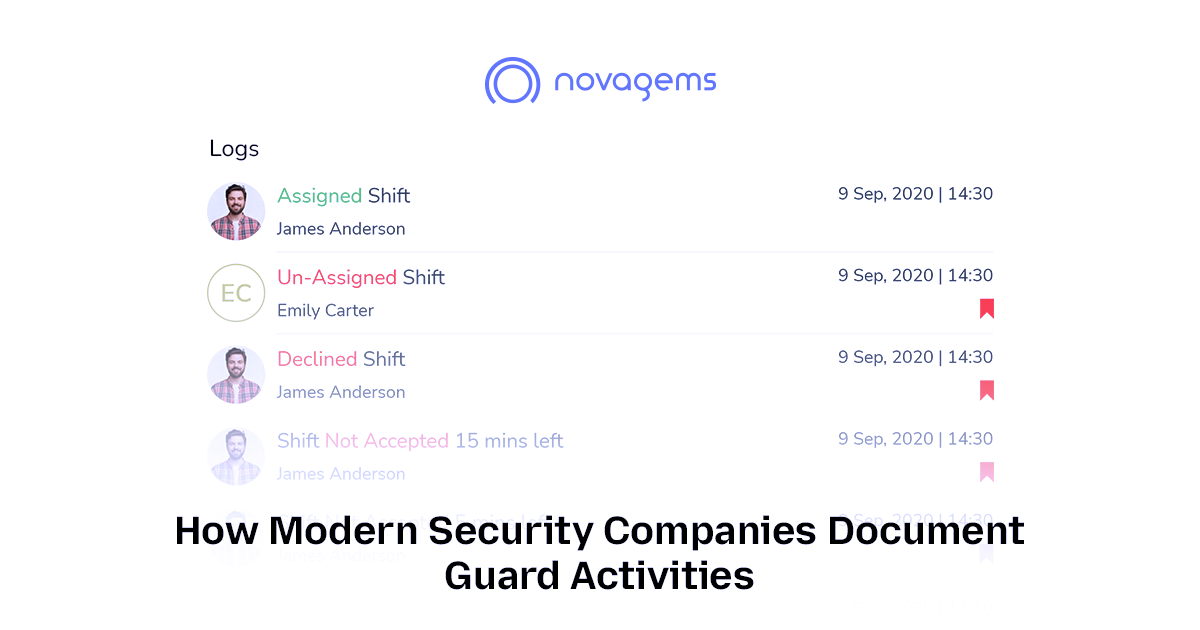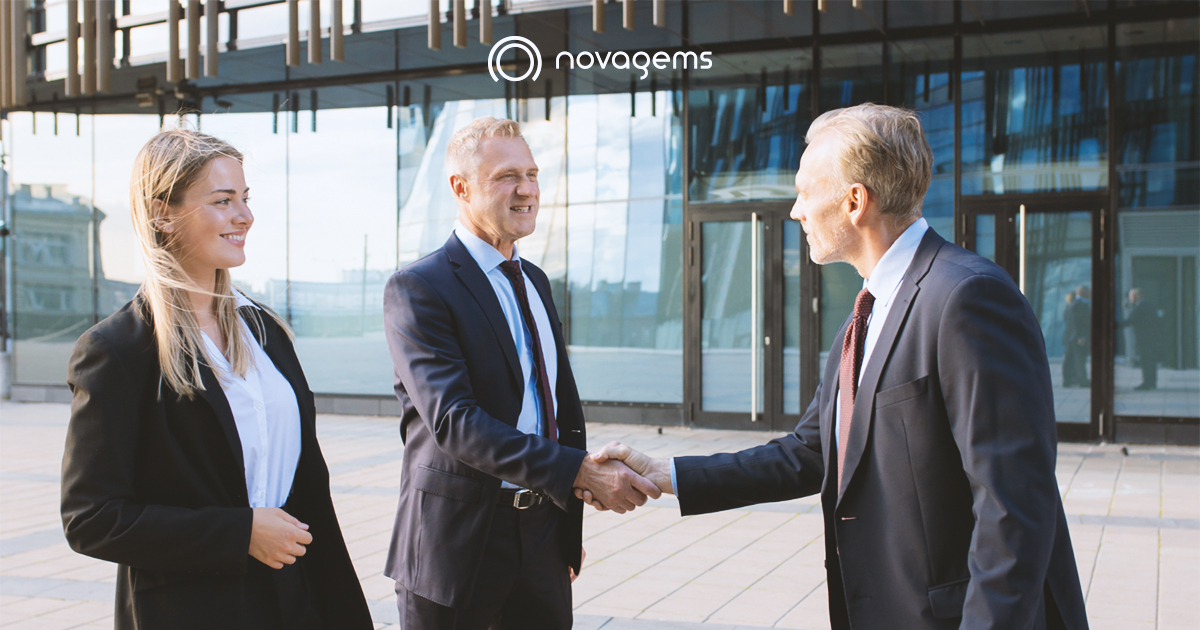Security Personnel Duties and Responsibilities: All You Need to Know
Published on: Tue, Oct 22, 2024
Read in 11 minutes
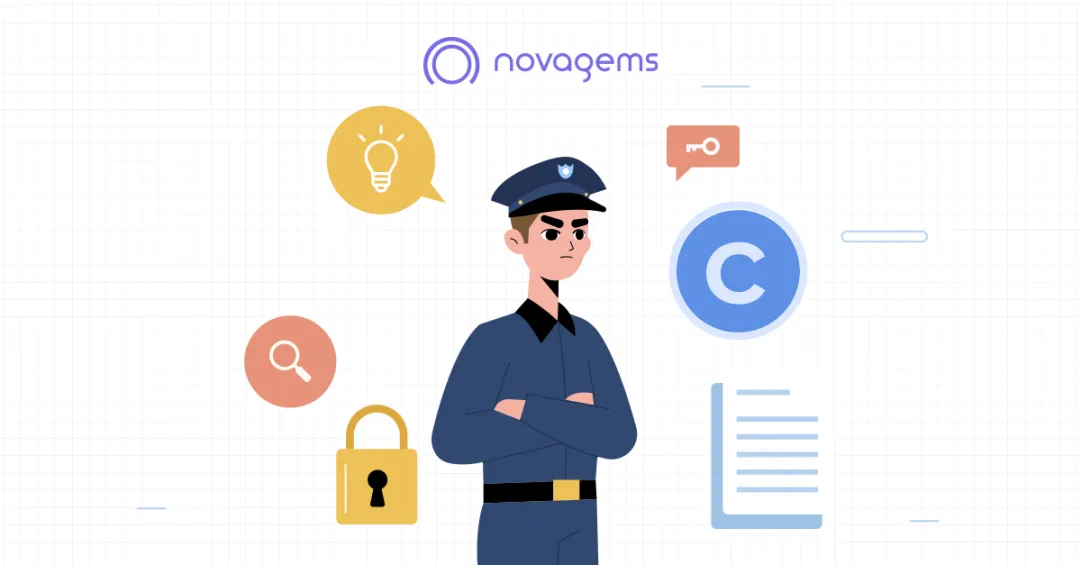
Key Takeaways:
- Understanding the core responsibilities of a security guard helps companies build safer environments.
- Duties may vary by location but typically include patrolling, access control, reporting, and emergency response.
- A clear security guard job description ensures better hiring, training, and performance.
Why Security Guard Responsibilities Matter
Security guards play a vital role in protecting people, property, and assets. Whether stationed at a commercial building, retail store, event venue, or residential complex, their presence deters crime and creates a sense of safety.
Understanding the security guard duties and responsibilities is essential for:
- Security companies who want to train their staff effectively
- Businesses hiring guards for their facilities
- Guards themselves who want to perform their jobs better
Let’s explore the most important responsibilities of a security guard in today’s world because North America dominated the global security guard management software market with the largest revenue share of 37.2% in 2024.
Security personnel play an important role in ensuring the safety of people, property, and assets. Whether it’s in an office, hospital, event, or even at home, security guards provide a sense of protection and order. And while companies leave no stone unturned when hiring them. Security guards need to understand the security personnel’s duties and responsibilities. This way they can prepare well for the challenges they might face.
By understanding the responsibilities and skills of security guards, we can appreciate the important work they do every day. Whether they’re patrolling a building, monitoring cameras, or responding to emergencies. Security personnel are the unsung heroes who keep us safe.
This blog will explain the key responsibilities, skills, and tasks of security personnel in a simple, easy-to-understand way.
What is the responsibility of the Security Guard?
The main responsibility of security personnel is to protect people and property. They do this by watching for suspicious activities, preventing unauthorized access, and responding quickly to any threats. The primary goal is to keep an environment safe and secure. This can be done by maintaining a strong visible presence. Which deters criminals from committing crimes such as theft or vandalism.
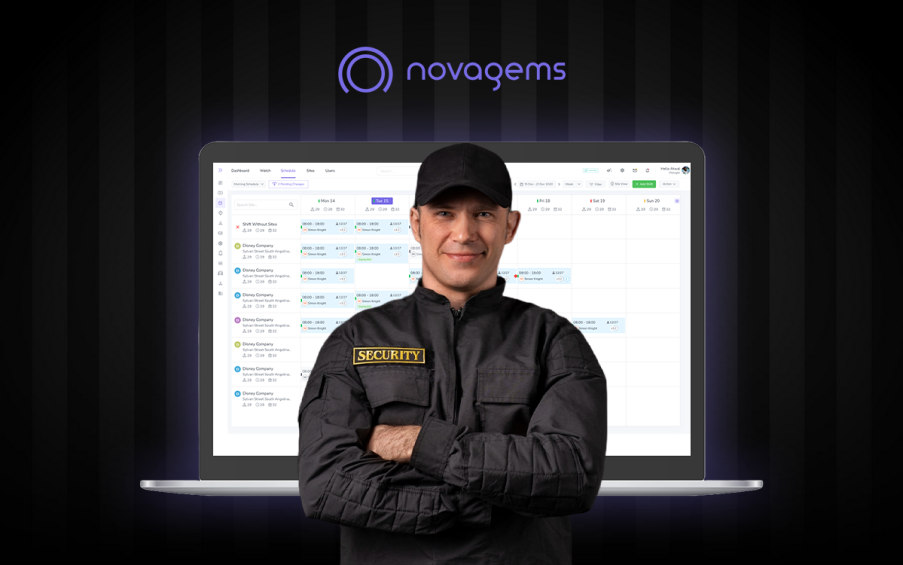
Security guards often act as a deterrent. Just their presence can stop potential wrongdoers from acting. Whether they are standing by an entrance or patrolling a parking lot, they help to prevent problems before they happen. In cases where something suspicious does occur. Then it is your job as a security guard to do quick thinking and response can prevent a small issue from becoming a major problem. There are many states where security personnel need a proper security guard license to operate.
Core Responsibilities of a Security Guard
Here are the most common duties every security guard is expected to perform:
1. Patrolling and Surveillance
Guards are responsible for regularly checking the premises for unusual activity. This includes:
- Walking or driving around the facility
- Monitoring CCTV cameras
- Watching entry and exit points
- Noting anything out of the ordinary
Patrolling helps prevent incidents and ensures early detection of suspicious behavior.
2. Access Control and Visitor Management
A major part of the responsibilities of a security guard is to control who enters and exits the premises. This includes:
- Checking IDs or visitor passes
- Maintaining entry logs
- Allowing access only to authorized personnel
- Escorting visitors when needed
Guards act as gatekeepers, ensuring that only approved individuals can enter.
3. Emergency Response and Crisis Management
Security guards must know how to respond quickly during emergencies such as:
- Fire alarms
- Medical incidents
- Fights or disturbances
- Suspicious packages or behavior
They may also coordinate with local authorities and assist in evacuations or lockdowns. Proper training ensures guards stay calm and follow protocols in high-pressure situations.
4. Incident Reporting and Documentation
One of the overlooked but critical responsibilities of a security guard is accurate reporting. This includes:
- Writing daily activity reports
- Documenting any incidents or policy violations
- Taking photos or video evidence if necessary
- Submitting reports to supervisors or clients
These records are useful for audits, insurance claims, and legal evidence.
5. Customer Service and Public Relations
In many places, especially commercial and retail settings, security guards are the first point of contact for visitors. They are expected to:
- Greet and assist guests
- Provide directions
- Offer a calm and helpful presence
Professionalism and good communication skills are essential here.
6. Crowd and Traffic Control
In high-traffic areas or during events, guards may be assigned to:
- Manage crowds
- Direct foot or vehicle traffic
- Prevent bottlenecks or overcrowding
- Handle entry screening at gates
This duty is especially important in venues, stadiums, and festivals.
Security Guard Job Description
A typical security guard job description includes various tasks, all aimed at keeping people and property safe. Here are the main tasks they perform:
- Patrolling the Area: One of the most important duties of a security guard is patrolling the area they are responsible for. This could be a building, a shopping mall, a hospital, or any other facility. They walk or drive around the premises to check for any signs of trouble, such as broken windows, unauthorized people, or suspicious activity.
Many security companies are very particular about this, so you better be prepared to make regular rounds around the area to check everything.
- Monitoring Surveillance Systems: Security guards are often responsible for watching CCTV cameras and security systems. They keep an eye on different parts of the property at all times and are trained to recognize potential threats before they become serious.
- Access Control: Controlling who enters and exits a building is a big part of a security guard’s job. They check identification, issue visitor passes, and ensure that only authorized people are allowed to enter certain areas. This helps keep sensitive areas secure.
- Responding to Emergencies: In the event of an emergency, such as a fire, medical incident, or security breach, security guards are often the first to respond. They must act quickly to help control the situation, guide people to safety, and communicate with emergency services. Security guard jobs are not at all easy, as they need to be quick on their feet. There will be situations when they need to act first and think later. And that is not easy.
- Writing Reports: After an incident or a shift, security guards are required to document what happened. These reports include details about anything unusual they observed, incidents they responded to, and any actions they took. This information is useful for improving security measures in the future. And this also plays an important role in your job as a security guard. You have to document anything and everything.
What Security Guard Skills Are Needed?
Security guards need a wide range of skills to be effective at their job. Below are some of the most important ones:
- Vigilance: Security guards must always stay alert and pay close attention to their surroundings. Even the smallest detail could be important, like a suspicious person or unusual behavior. Being aware of these things helps prevent problems before they occur.
- Communication Skills: Good communication is key for security guards. They need to be able to give clear instructions during emergencies, talk to visitors politely, and report incidents accurately. Strong communication skills make it easier for them to keep everyone safe.
- Problem-Solving: Security guards often have to think quickly on their feet. They need to know how to handle difficult situations, whether it’s calming down an angry customer, managing a large crowd, or de-escalating a conflict.
- Physical Fitness: The job of a security guard can sometimes be physically demanding. Patrolling large areas, standing for long hours, or dealing with emergencies all require good physical health and stamina.
- First Aid Training: Many security guards receive basic first aid training, which can be essential during medical emergencies. Knowing how to perform CPR or bandage a wound can save lives in critical situations.
Security Guard Responsibilities
Security guards have several key responsibilities that help maintain safety in various environments. These include:
- Crime Prevention: One of the most crucial tasks of a security guard is to stop crime before it happens. Their presence alone acts as a deterrent to criminals. They must stay vigilant and ready to intervene if necessary. Any and every security guard’s job revolves around keeping crime to a minimum.
- Handling Emergencies: Security guards are often the first to react in emergencies, whether it’s a fire, a break-in, or a medical incident. They must assess the situation, assist people in need, and coordinate with emergency services.
- Crowd Management: In places like concerts or sporting events, security guards manage large crowds. They ensure that people follow the rules, keep pathways clear, and prevent overcrowding. This helps to avoid accidents or conflicts.
- Incident Reporting: After any security issue, such as theft or vandalism, the security guard needs to write a detailed report. These reports help with investigations and can be used to make the place safer in the future.
- Using Security Technology: In many jobs, security guards need to operate security technology, such as surveillance cameras, alarm systems, and access control tools. These tools help them monitor the area and respond quickly to threats. And there are many security companies that use security guard management software. So they will need to learn how to operate that as well. And yes, regular training and learning come under security officer duties and responsibilities.
Security Guards as First Responders
Security guards are often first responders in emergencies. This means that they are the first people to arrive at the scene when something goes wrong. Whether it’s a medical emergency, a fire, or a break-in, their job is to take control of the situation until the proper authorities arrive.
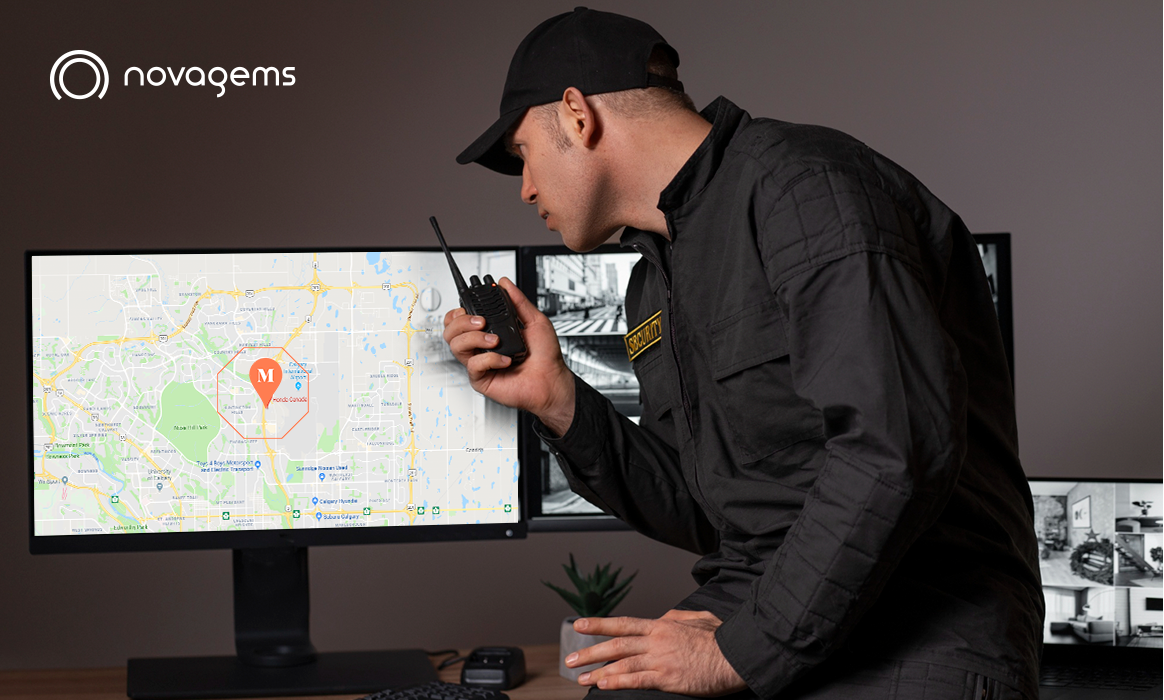
Security guards are trained to stay calm under pressure. In emergencies, they may need to perform first aid, guide people to safety, or contain a dangerous situation. They must also communicate with emergency services, such as police or firefighters, to ensure that help arrives quickly.
In some cases, security guards are responsible for evacuating people from buildings during fire alarms or other dangerous situations. Their quick actions can save lives and minimize damage.
Technology and Modern Security Guard Tools
Security work has evolved. Today’s guards use more than radios and notebooks.
They now rely on:
- Mobile apps for real-time reporting
- Guard tour systems with GPS tracking
- Cloud-based incident logs
- Access control devices like biometric scanners
- Security alarm integrations
Technology helps ensure guards are present at checkpoints, respond faster, and maintain accurate logs. According to Cognitive Market Research, The Global Security Guard market is USD XX billion in 2023 and will grow at a compound annual growth rate (CAGR) of 8.10% from 2023 to 2030. Tools like Novagems can automate the tasks easily and improve team accountability.
Security guards are also needed in:
Retail Stores and Shopping Malls
In retail environments, the focus is on theft prevention and customer safety. Responsibilities include:
- Monitoring suspicious shopper behavior (shoplifting, bag tampering)
- Patrolling aisles, restrooms, parking lots
- Working with store managers during incidents
- Responding quickly to escalated customer disputes
- Assisting during emergency evacuations (fire alarms, power outages)
Retail guards must balance vigilance with a welcoming, customer-service-friendly attitude.
Corporate Offices and Commercial Buildings
Here, security guards serve a more professional, access-control role. Duties include:
- Verifying IDs and managing entry badges
- Logging visitor check-ins and issuing passes
- Escorting guests to meetings
- Monitoring surveillance cameras across multiple floors
- Enforcing company policies (e.g., no unauthorized deliveries)
In these locations, professionalism, communication, and familiarity with security protocols are key.
Residential Complexes and Gated Communities
For residential areas, guards focus on community safety and comfort. Responsibilities include:
- Monitoring entry and exit of residents, guests, and vendors
- Responding to noise complaints or disturbances
- Patrolling parking areas and playgrounds
- Reporting suspicious behavior to property managers or police
- Operating intercoms or gate systems for visitor approvals
Residents rely heavily on guards for a sense of security and quick response.
Events and Concert Venues
Guards in event settings must maintain order in dynamic, high-traffic environments. Duties involve:
- Screening attendees and checking tickets
- Ensuring security near VIP areas or backstage
- Crowd flow control to avoid congestion
- Conflict resolution between attendees
- Coordinating with emergency teams if needed
These guards must be alert, assertive, and capable of managing large groups under pressure.
Hospitals and Healthcare Facilities
Security in medical settings has a sensitive nature. Tasks include:
- Protecting patients, staff, and expensive equipment
- Ensuring safety in ER and psychiatric wards
- Monitoring restricted areas (pharmacy, surgical zones)
- Escorting aggressive or at-risk individuals
- Handling code alerts and emergency drills
These guards often require additional training in de-escalation and mental health protocols.
Construction Sites and Industrial Facilities
These are high-risk zones with equipment and limited supervision. Responsibilities include:
- Preventing equipment theft and unauthorized access
- Logging in/out contractor staff and deliveries
- Inspecting fencing, barriers, and lighting
- Reporting hazards or violations (e.g., no hard hats)
- Responding to after-hours alarms or movement
Industrial guards must understand safety regulations and be highly observant.
Airports and Transportation Hubs
Guards in transit settings are trained for high-alert environments. Tasks may include:
- Checking identification and screening baggage
- Managing access to restricted zones
- Patrolling terminals, platforms, and loading areas
- Assisting passengers with directions or emergencies
- Reporting unattended luggage or suspicious activity
These roles demand attention to detail and the ability to handle high-stress situations calmly.
Conclusion
Security personnel are essential for keeping people, property, and assets safe. Their duties range from crime prevention and surveillance to managing emergencies and providing customer service. With the right skills, security guards play a key role in maintaining order and protecting the community.
Their role as first responders in emergencies makes them even more vital. With proper training and quick thinking, security guards can handle a wide variety of situations, ensuring that people feel protected wherever they are. And I hope this blog was able to describe the role of the security officer in detail. And if you want to learn how to get a security guard license in 2024, we have a blog specially for you! Click here to learn more.
Get a Free Trial
Sign up For Newsletter
Latest Blog Posts
Get Started
Start being productive & grow your business
with Novagems


